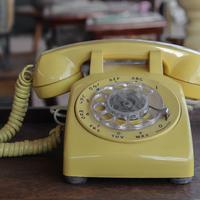
Jun 1, 2018
When reporter Brenna Farrell was a new mom, her son gave her and her husband a scare—prompting them to call Poison Control. For Brenna, the experience was so odd—and oddly comforting—that she decided to dive into the birth story of this invisible network of poison experts, and try to understand the evolving relationship we humans have with our poisonous planet. As we learn about how poison control has changed over the years, we end up wondering what a place devoted to data and human connection can tell us about ourselves in this cultural moment of anxiety and information-overload.
Call the national Poison Help Hotline at 1-800-222-1222 or text POISON to 797979 to save the number in your phone.
This episode was reported by Brenna Farrell and was produced by Annie McEwen.
Special thanks to Wendy Blair Stephan, Whitney Pennington, Richard Dart, Marian Moser Jones, and Nathalie Wheaton. Thanks also to Lewis Goldfrank, Robert Hoffman, Steven Marcus, Toby Litovitz, James O'Donnell, and Joseph Botticelli.
Support Radiolab today at Radiolab.org/donate.
Further Reading:
The Poisoner's Handbook, by Deborah Blum
The Poison Squad, by Deborah Blum
Illinois Poison Center’s latest “A Day in the Life of a Poison Center” post
You can find out more about the country’s 55 poison centers at the American Association of Poison Control Centers.
"Poison Politics: A Contentious History of Consumer Protection Against Dangerous Household Chemicals in the United States," by Marian Moser Jones:
2011 article from The Annals of Emergency Medicine: "The Secret Life of America's Poison Centers," Richard Dart
A 1954 article from Edward Press -- one of the key figures in creating a formalized poison control system in Chicago in the early 1950s, Press and Gdalman are credited with starting the first poison control center in the US in 1953 in Chicago: "A Poisoning Control Program" Edward Press and Robert B Mellins.